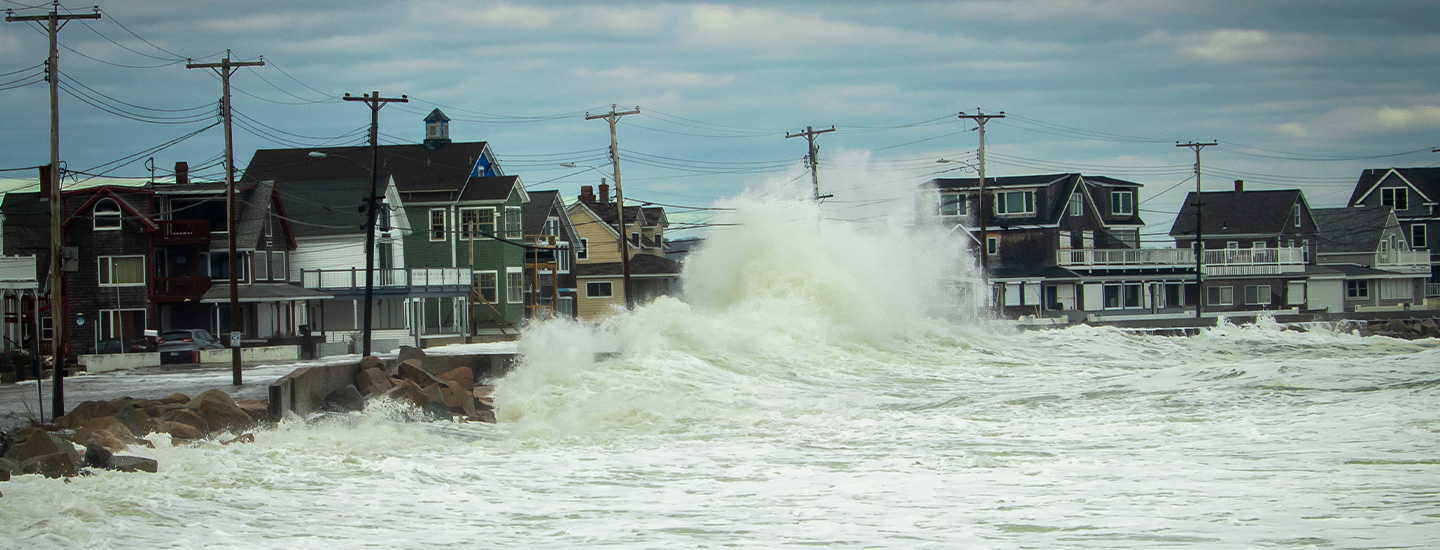
Last year was officially the hottest year on record. In fact, several temperature records were broken. For example, July was the hottest month ever recorded—with 17 consecutive days of record setting temperatures. In August, ocean temperatures off the coast of the Florida Keys hit 101 Fahrenheit shattering a previous record. The earth’s temperature has not been this high for roughly 125,000 years.
 Now, as 2024 gets underway, we are experiencing the pendulum swing of climate whiplash with cold temperatures and extreme snow, rain, and wind events. West Coast states are experiencing a deluge of rain, snow, and cold temperatures. On January 22, 2024, the Mayor of San Diego declared a state of emergency after hundreds of people had to be rescued from flooded homes in south San Diego. View a video posted by our San Diego chapter. During this past week, an atmospheric river has battered the California coastline, dumping historic levels of rainfall on Los Angeles, and causing hundreds of landslides and significant flooding.
Now, as 2024 gets underway, we are experiencing the pendulum swing of climate whiplash with cold temperatures and extreme snow, rain, and wind events. West Coast states are experiencing a deluge of rain, snow, and cold temperatures. On January 22, 2024, the Mayor of San Diego declared a state of emergency after hundreds of people had to be rescued from flooded homes in south San Diego. View a video posted by our San Diego chapter. During this past week, an atmospheric river has battered the California coastline, dumping historic levels of rainfall on Los Angeles, and causing hundreds of landslides and significant flooding.
Over the past month, East Coast and Midwest states have faced widespread heavy rainfall, snow, freezing temperatures, flash flooding, blustery winds, and significant coastal flooding. Check out this incredible video our New Hampshire chapter posted.
The chaotic weather events occurring can be attributed to a rapidly changing climate. For example, climate scientists indicate that polar vortex "outbreaks" and atmospheric rivers have become more severe and common in recent decades due to climate change. The U.N.'s Intergovernmental Panel on Climate Change (IPCC) report summarizes that humanity is woefully behind curbing climate change, with a lead author warning: "The climate time bomb is ticking. The Intergovernmental Panel on Climate Change’s report is a how-to guide to defuse the climate time bomb. It is a survival guide for humanity,” he said. “As it shows, the 1.5-degree limit is achievable. But it will take a quantum leap in climate action.”
Without a quantum leap in action, our coastlines will increasingly suffer from major climate change impacts. Fortunately, some positive advancements were made in 2023 that will assist coastal states and communities to proactively address climate impacts. At the federal level, great strides to mitigate and adapt to climate change impacts were made under President Biden’s Administration and Congress. President Biden launched an Ocean Climate Action Plan that specifically focuses on working with local communities to proactively address climate change impacts locally. The plan calls for nature-based solutions that leverage the power of the ocean and coastlines to mitigate and adapt to climate change impacts.
In 2023, unprecedented funding from landmark legislation, the Inflation Reduction Act (IRA) and Bipartisan Infrastructure Law (BIL), became available for cities, states, and tribes to address climate change. Over the course of the year, Surfrider advocated that BIL and IRA funds go specifically toward coastal restoration and climate-resilience planning. In a major victory for our ocean and coasts, an impressive $6 billion was earmarked for coastal resilience.
In March 2023, Surfrider met with the Biden Administration at the White House where we discussed coastal resilience funding and ways to improve the implementation of coastal climate adaptation laws and policies. To help better educate the public about these funds, Surfrider published a guide that tribes, states, and cities can use to access funding. Surfrider is working on the ground to help states and local entities identify BIL and IRA funding opportunities and direct those funds to adaptation projects and policy implementation that overlap with IRA and BIL funding goals.
For example, Washington state is receiving both BIL and IRA funding to improve coastal resilience. Surfrider is ensuring these funds go toward implementing new regulations that require local land use plans to include sea level analysis. In California, Surfrider is helping communities and state agencies identify and acquire funds that will go toward coastal restoration and updating land use plans to adapt to sea level rise. In Florida, Surfrider is advocating that state and local municipalities apply for BIL and IRA funding to update sea level rise vulnerability assessments, per a recent state law that passed.
There has been major progress over the past year but much more work remains to be done.
Help be part of the solution. Please consider joining Surfrider today where you can make a difference for the future of our planet.
Top Image: Arthur Villator/Shutterstock.com
